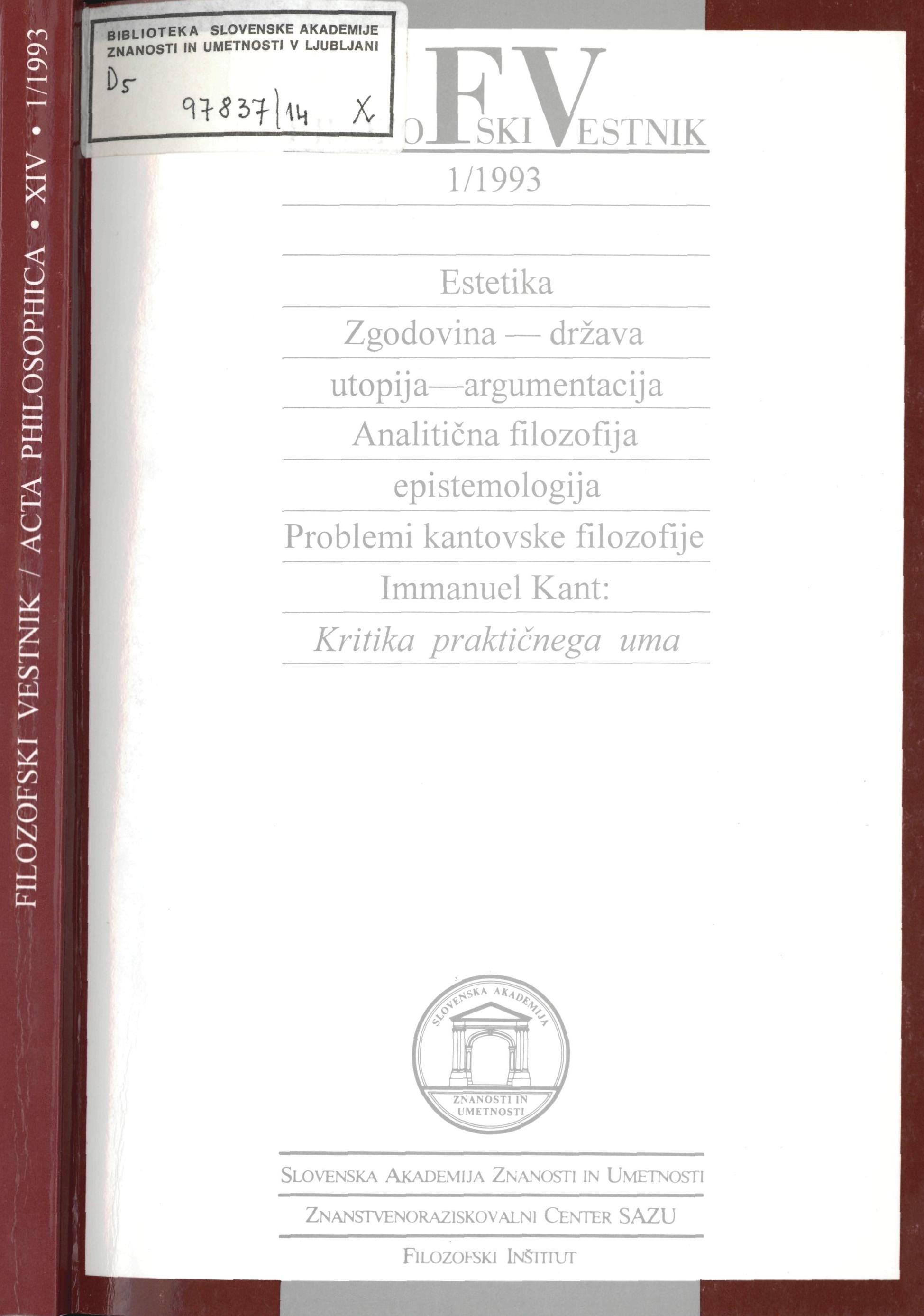KANT, RAZSVETLJENSTVO IN RAZVOJ TER IZTEK TEORIJE DRUŽBENE POGODBE
Povzetek
Tekst najprej prikaže osnovna dvoumja Kantove politične filozofije, ki so v veliki meri posledica njegovega odnosa do razsvetljenstva in francoske revolucije. Zatem primerja Kantovo teorijo družbene pogodbe kot utemeljitev razsvetljenega absolutizma, s Hobbesovo teorijo, da bi pokazal na njune podobnosti in razlike, predvsem glede pravice do neposlušnosti in upora. V nadaljevanju si avtor ogleda Lockovo teorijo družbene pogodbe in vprašanje, kako je pravica do upora izpeljana in postavljena znotraj njenega okvira, ob primerjavi Lockove in Kantove teorije pa izpostavi poglavitne težave Kantove teorije politike, morale in prava.Prenosi
Podatki o prenosih še niso na voljo.
Prenosi
Objavljeno
2016-01-21
Kako citirati
Korošec, G. (2016). KANT, RAZSVETLJENSTVO IN RAZVOJ TER IZTEK TEORIJE DRUŽBENE POGODBE. Filozofski Vestnik, 14(1). Pridobljeno od https://ojs.zrc-sazu.si/filozofski-vestnik/article/view/3850
Številka
Rubrike
Problemi kantovske filozofije
Licenca
Avtorji jamčijo, da je delo njihova avtorska stvaritev, da v njem niso kršene avtorske pravice tretjih oseb ali kake druge pravice. V primeru zahtevkov tretjih oseb se avtorji zavezujejo, da bodo varovali interese založnika ter da bodo povrnili morebitno škodo.
Podrobneje v rubriki: Prispevki





